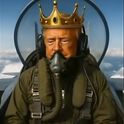On Sunday morning, 27 people were killed and beheaded in northern Guatemala following a raid on a dairy ranch in Caserio La Bomba. The incident has been described as the worst massacre in Guatemala for over 15 years. Amid growing suspicion that the attack may be linked to the rising presence of the Mexican Zeta drug cartel in Guatemala, the massacre may also point to the wider responsibilities of Mexico’s drug war.
Caserio La Boma is located in the northern Guatemalan province of Petén, which has become a popular contraband drugs route between the US and South America. Police are investigating whether the recent massacre could be linked to the killing last Saturday of Haroldo Leon, the brother of Guatemalan alleged drug trafficker Juan Jose “Juancho” Leon. In March 2008, Leon was killed alongside 10 other people in an ambush in eastern Guatemala. The ambush was a result of rising tensions between the Zetas and a Guatemalan drug gang over a turf war for control of drug smuggling routes.
The Zetas have been blamed for two recent mass killings in Mexico. Last month over 180 bodies were found in mass graves, and 72 migrants were massacred last summer in the state of Tamaulipas, which is close to the Texan border. These revelations, and the rising numbers of casualties and fatalities, have shown that there is still a huge question mark hanging over Mexican President Felipe Calderón's anti-drug trafficking campaign. The recent death of the son of prominent Mexican poet Javier Sicilia sparked off protests across the country in April and May. In a protest in Zócalo two weeks ago, Sicilia directly criticised the failings of Calderón's government, by calling for"cambio radical o boicot electoral" (radical change or election).
The drug war has cost some 40,000 lives in Mexico itself, but the massacre in Guatemala highlights that Calderón's campaign has tragically succeeded in pushing the problem further south, where law enforcement is noticeably weaker. In December, Guatemalan President Álvaro Colom launched a two-month-long state of siege in the province of Alta Verapaz to quash drug-related violence. The operation saw the arrest of at least 20 Zetas, but reports in mid-January drew attention to the inability of Guatemala’s army to counter the rising threat of drug cartels.
Guatemala is not the only central American country to be affected by Mexico’s drug cartels. The northern triangle of central America—Guatemala, El Salvador and Honduras—has long been a “smuggling corridor” for drug trafficking, and has struggled to contain the violence and power exerted by cartels such as the Zetas.
Following the killing in March of two US consulate employees in Mexico’s notoriously violent city Ciudad Juárez, Calderón and the US ambassador to Mexico called for the US to share the responsibility for the fight against organised crime in Mexico. An estimated 70 per cent of the drugs that enter the US pass through central America, and US drug consumption is blamed for perpetuating violence throughout the region. Following previous failed attempts to provide monetary and logistical support for anti-drug campaigns in the region, President Obama launched the new "Central American Citizen Security Partnership" during a visit to El Salvador in March, and pledged $200m to combat drug trafficking and gang violence in central America.
These moves were indicative of a wider recognition that Mexico's drug war is a global crisis. In January, Colom announced his proposal for a "Mesoamerican Plan for Security and Justice." He outlined plans to receive logistical support from Mexico, Colombia and the US, and is in talks with the EU to increase the amount of anti-drug aid to Guatemala. In May, German President Christian Wulff said that Europe should also share responsibility for Mexico's drug war. The practical effects of this rhetoric were felt in March, when US and Guatemalan forces captured the infamous drug lord Juan Ortiz Lopez.
The massacre in Caserio La Bomba is nothing short of tragedy, and highlights the need for Mexico, the US, Europe and other nations to take responsibility for Mexico’s drug war. The world must accept that it is not just a local but an international problem, which shows little sign of abating.
Mexico's drug war is a global crisis
May 19, 2011

Gunman in Guatemala: the drug war is not confined to Mexico, and world leaders must assume responsibility











